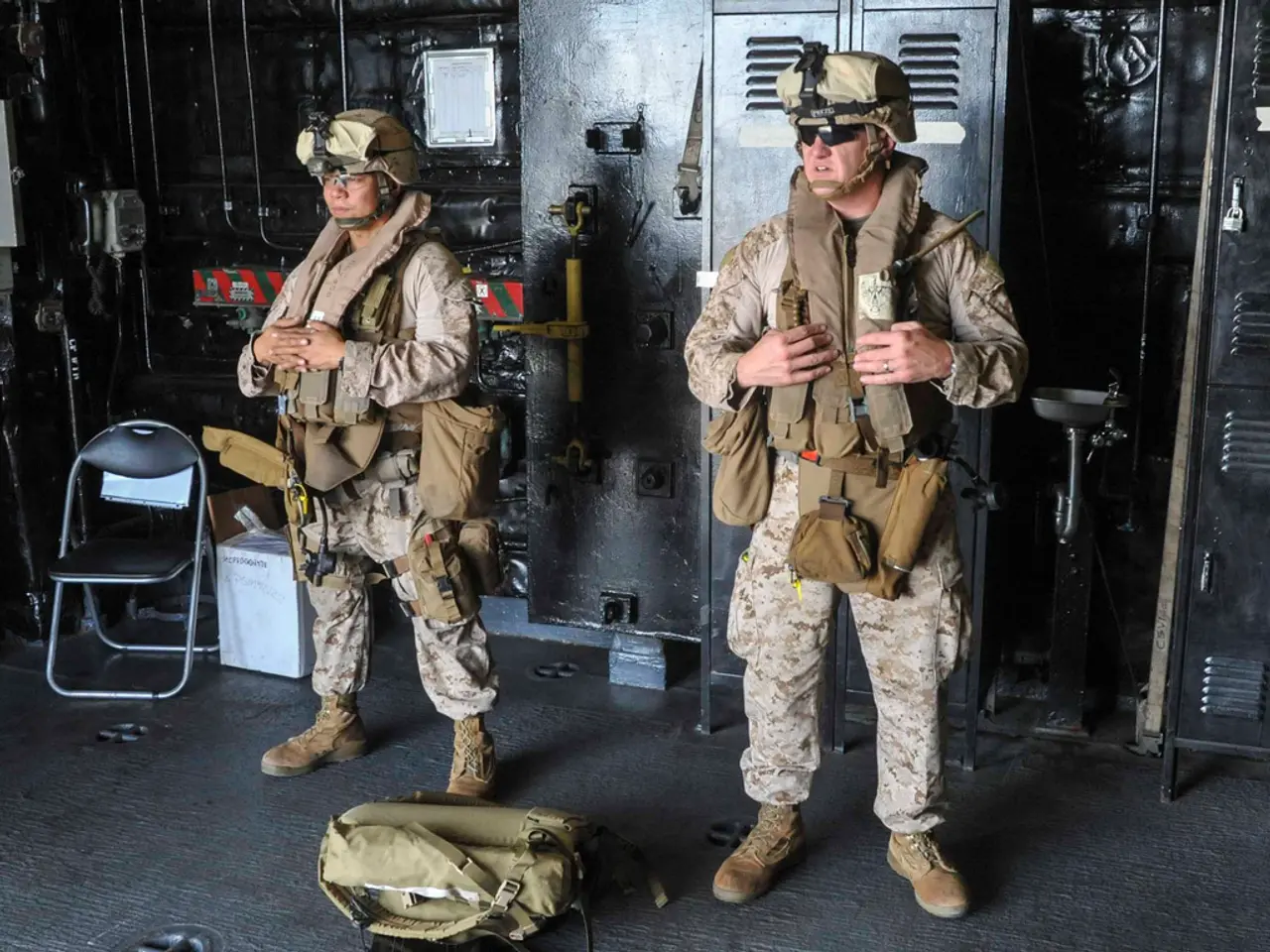Bundeswehr soldiers are viewed as a potential security assurance, according to Röwekamp's perspective.
In the wake of ongoing conflicts in Ukraine, discussions about potential German peacekeeping troops have emerged, sparking heated debates and political opposition. Chancellor Friedrich Merz and some officials have shown cautious openness to the idea, viewing it as a responsibility for securing Europe's political order [1][4]. However, the final decision hinges on several factors.
The proposal emphasises key conditions, such as the establishment of a demilitarized buffer zone between Russian forces and peacekeepers [2], reliable security guarantees, particularly from the United States [1][2], and suitable military capacity with politically feasible troop commitments [2]. The German Reservist Association even suggests that Germany should contribute the largest contingent, but only if conditions are "sensible" and militarily viable [2].
However, opposition to the proposal is strong. Opposition parties, including the far-right AfD, The Left, and parts of the CDU, reject sending German troops, citing concerns over escalation with Russia and historical sensitivities regarding German military deployment abroad [1][3][4]. Internal dissent within Chancellor Merz’s coalition also exists, with some Social Democrats and conservative CDU figures opposing troop deployment [1].
A recent Civey survey indicates that a majority (51%) of German citizens oppose Bundeswehr participation in Ukraine, with only 36% in favour [3]. German military experts caution against sensationalizing the notion of "ground forces," clarifying that proposed missions would likely focus on broader security guarantees rather than frontline deployment [3].
Despite the opposition, Thomas Röwekamp, the head of the Bundestag's Defense Committee, expects German soldiers to be deployed in Ukraine as part of a peace agreement and security guarantees [5]. The President of the Reserve Association, Patrick Sensburg, is also open to German soldiers participating in a peace mission in Ukraine, provided that conditions are met [6]. Sensburg suggests a demilitarized buffer zone between Russian soldiers and peacekeeping troops as a crucial condition for such a mission [6].
However, Russia is currently not agreeing to a demilitarized buffer zone [7]. Sensburg warns against a rushed debate regarding German troops in Ukraine and emphasizes the importance of conditions for a peacekeeping mission in Ukraine [6]. He believes that it is impossible for European forces to outnumber the Russian army alone [6].
In summary, Germany’s potential peacekeeping role in Ukraine hinges on political consensus within Germany and Europe, clear security guarantees from allies (notably the US), militarily viable conditions such as buffer zones, public acceptance amid historical and geopolitical sensitivities, and coordination within a multinational framework [1][2][3][4]. Without these, German peacekeeping troops in Ukraine remain a debated and unresolved proposal [1][2][3][4].
The debate over peacekeeping troops in Ukraine has heated up after the Trump summit, with experts finding it logical for German soldiers to serve in Ukraine to monitor peace agreements [8]. Röwekamp states that the debate over sending German soldiers to Ukraine is premature, as it is unclear if there will be a peace agreement and what security guarantees it will come with [9].
If a peacekeeping mission under sensible conditions becomes imminent, Sensburg demands that Germany should take the lead and provide the largest contingent [10]. Despite the current theoretical nature of the discussions, planning discussions are ongoing between European countries and the US about forming a "Coalition of the Willing" to provide security guarantees and deterrent forces in case hostilities cease, but no final deployment or mandate has been confirmed [3][4].
Read also:
- Weekly happenings in the German Federal Parliament (Bundestag)
- Southwest region's most popular posts, accompanied by an inquiry:
- Discussion between Putin and Trump in Alaska could potentially overshadow Ukraine's concerns
- Massive 8.8 earthquake hits off the coast of Russia's Kamchatka Peninsula, prompting Japan to issue a tsunami alert.








